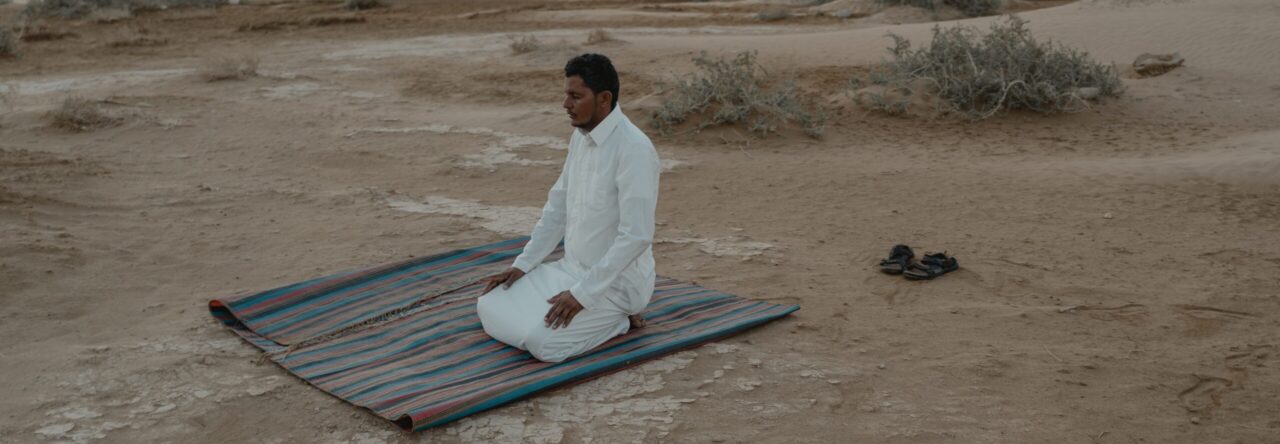During the current Coronavirus outbreak, and temporary shuttering of mosque doors, many of us are reflecting on our experiences with our mosques. For this contributor, a complicated relationship surrounds his experience with his local mosque. Though it may be particularly painful to read during this time, his story is an important reminder so we thought to share it anyway. May Allah ﷻ grant us His grace and return us to His houses of worship soon. Ameen -Admin
بسم الله الرحمن الرحيم
اللهم صلي وسلم على سيدنا محمد
Allah, open the doors of Your mercy for me – اللهم إفتح لي أبواب رحمتك
I sprinted across the expansive carpet,
reaching top speed
weaving through legs,
dodging glasses,
(alright, maybe I stepped on a few)
racing a new friend,
before everyone went into sujood.
Twenty years later, I still get grief about those flattened and broken glasses and I make it a point to keep mine in my pocket whenever I pray in the mosque. Still, I would never turn rowdy kids away from the mosque. I have always been a proponent of the idea that children should be allowed to experience the house of Allah ﷻ with joy. I would argue, to anyone who would listen, that every person who worshipped Allah ﷻ in any of His houses should seek to also uplift the children who are in His house.
The joy I experienced as a child, and my idealism about it as I grew, guided me to join a group of people who sought to serve at my local mosque. I tried to help as they came together to transform a house of Allah ﷻ from a space for ritual prayer alone, to a space that brought people together intentionally; a space that would meet our “community needs”. We wanted our mosque to be a space that would live out all the stories we heard about the mosque in the time of the Prophet ﷺ – a dream of a mosque brought to reality.
Allah, open the doors of Your mercy for me – اللهم إفتح لي أبواب رحمتك
The extraordinary is witnessed – in His house.
Stoic, strong, becomes bent, weak – in His house.
Hungry, homeless, becomes full, housed – in His house.
Harsh, sharp, becomes soft, conscientious – in His house.
Poor, needing, becomes rich, giving – in His house.
Lost, exhausted, becomes guided, invigorated – in His house.
Looked-over, dejected, becomes sought-after, respected – in His house.
We were living the dream. I witnessed a complete stranger arrive from out of town, go to the closest mosque to rest, ask Allah ﷻ for help, and he had housing before the night was out. I witnessed a man larger than most doorways become reduced to the size of his out-stretched, tear-riddled hands, as he begged Allah ﷻ for strength. I witnessed a friend transform from constantly judging others with a sharp-tongue to someone who guarded his words and spent more time asking for forgiveness from people than judging their actions.
